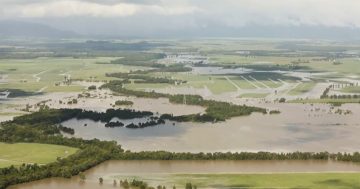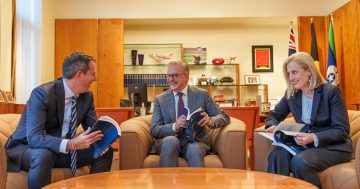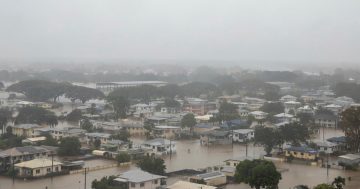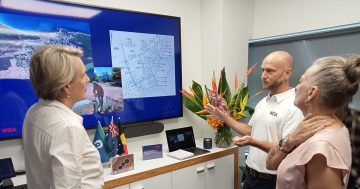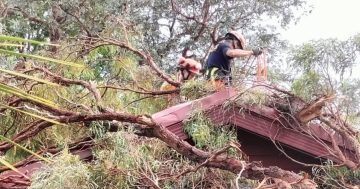
Australia needs to prepare for a range of threats, not just ‘natural disasters’. Photo Sydney Film Festival.
On 23 October, the Australian Government launched the Bushfire Resilience Rating app – a release date likely planned to get the app into circulation before the traditional start of the bushfire season.
The intent of the app is a genuine attempt to assist individuals to become ‘bushfire ready’.
As Murray Watt, the Minister for Emergency Management, said: “While governments have a role to play in preparing for this peak period for severe weather, it is collective responsibility households also share. As more people use the app and take action – large or small – communities around Australia will be better prepared.
“The Australian Government continues to explore and support ways to make Australia more resilient to natural disasters.”
However, we must be resilient to many threats, not just “natural disasters”.
So what does ‘resilience’ really mean for us – as individuals, as communities, and as a nation?
Ensuring the safety and security of our homes is fundamental, but we also need our neighbours to feel the same way and to act. We need our local communities to work together, our local councils and state/territory /federal government levels to act collaboratively. It sounds logical, and even achievable, given our history of working together in times of natural disasters. Yet, in reality, it is not so straightforward.
Australians are faced with concurrent, and in some cases existential, challenges. These include climate change and the urgent need to reduce emissions, growing global and regional security risks, a global pandemic that has had persistent societal and economic impacts, a global energy transformation where we are lagging the developed world, and a global market model that has resulted in reduced resilience, as evidenced in the face of recent crises.
For the past three years, our Institute for Integrated Economic Research – Australia (IIER-A) has run a National Resilience Project, which addressed three fundamental questions: What is a resilient society? Are we resilient enough? Can we make ourselves more resilient?
We postulated three key attributes of a resilient society: shared awareness and shared goals, teamwork and collaboration, and the ability to prepare and mobilise in the face of a crisis.
The project highlighted our lack of resilience in all three areas. We concluded that there is a lack of shared awareness and shared goals in Australia and limited honesty and directness from some Australian politicians about our future challenges. This situation is exacerbated by our Federation’s political systems which have not been able to address our risks and vulnerabilities in a coherent, systemic manner.
Political reactions are often too little, too late, and too short-sighted.
To become truly resilient, we first need a deep understanding of what threats we are building resilience against. Then we need to agree about the best approach to deal with it. ‘If you don’t know, vote no’ (or, in other words, do nothing) is not an approach to national challenges that will serve us well in the future.
Wilful ignorance will only lead to societal disruption in a crisis and will prevent us from collaborating and cooperating to become truly resilient. We will just wander around in a cloud of complacency.
Unfortunately, the prevalence of political spin in lieu of substance over the past decade has also dulled our senses to the point of complacency. Neither side of politics is blameless in this respect. There is no National Security Strategy, nor is there a National Resilience Strategy.
There are no current Australian risk assessments for climate change, energy, economy and our health system. We are simply not prepared; we largely just wait to react.
We are likely to see more compounding disasters on a national scale with far-reaching consequences. We need to be better prepared for these disasters. A nationally coordinated and, where appropriate, standardised and interoperable disaster preparedness and mobilisation system needs to be developed. Business-as-usual, or more correctly, business-as-was, is not an option.
The actions we need to take are not beyond our ability to design and implement; we have considerable expertise and resources in this country. We need to act. We need leadership.
We will explore these issues further in our articles over the next few months.
Air Vice-Marshal John Blackburn AO (Retd) is the chair of the Institute for Integrated Economic Research-Australia and also a consultant in the field of defence and national security. He is a Fellow of the Royal Society of NSW, the Institute For Regional Security, the Sir Richard Williams Foundation and the Australian Institute of Energy.
Anne Borzycki is the Director at the Institute for Integrated Economic Research Australia Ltd. She is currently working in the field of national resilience and supply chain vulnerability as they relate to national security.
Original Article published by John Blackburn on Riotact.


